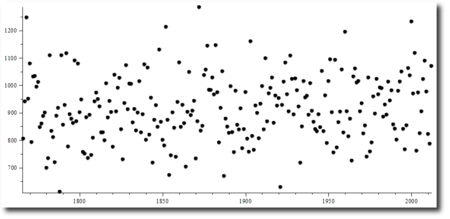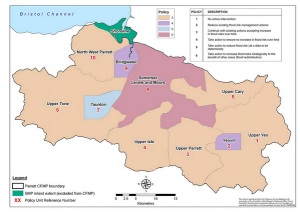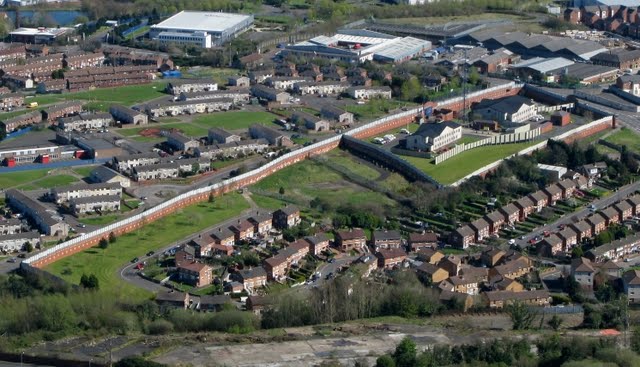“Our first responsibility is to make money for our clients….and nothing is more important than oil.”
Jeremy Grantham….Bob Ward’s boss and also that of Lord Stern.
‘Something funny’s happening to the weather’.
Just some things to consider when reading BBC exclamations that man made climate change is here…
What to believe eh?
No Arctic ice?…and yet ice is increasing….drier, colder winters?…..and yet winter is warm and wet……drought in the summer? and yet the summers are wet……..it’s the Jetstream?…or is it 4% more moisture in the atmosphere…….or disturbed weather patterns over Indonesia… .or trade winds…or ocean heat sinks….or or or….?????
Funny old world……they admit there’s been no global warming for at least 15 years and yet they claim a bit of extra winter rain one year, never mind the winter droughts, is due to global warming…..and yet the warming decades running up to 1998 were getting drier…..only since global warming stopped has it got a bit wetter in places.
Groundwater levels timeline 1970 0nwards…click on the timeline at the bottom left to run show.
From the Met Office 2013/14:
SUMMARY – PRECIPITATION:
Confidence in the forecast for precipitation across the UK over the next three months is relatively low. For the December-January-February period as a whole there is a slight signal for below-average precipitation. The probability that UK precipitation for December-January-February will fall into the driest of our five categories is around 25% and the probability that it will fall into the wettest category is around 15% (the 1981-2010 probability for each of these categories is 20%).
Decreasing amounts of ice in the far north is contributing to colder winters and drought, chief scientist Julia Slingo tells MPs
The reduction in Arcticsea ice caused by climate change is playing a role in the UK’s recent colder and drier winterweather, according to the Met Office.
Speaking to MPs on the influential environmental audit committee about the state of the warming Arctic, Julia Slingo, the chief scientist at the Met Office, said that decreasing amounts of ice in the far north was contributing to colder winters in the UK and northern Europe as well as to drought.


A rising trend in rain?


Record rainfall?

Stormier weather?

9 February 2014
As yet, there is no definitive answer on the possible contribution of climate change in the recent storminess, rainfall amounts and the consequent flooding. This is in part due to the highly variable nature of UK weather and climate.
Heavier but shorter bursts of rain will lead to flooding…right?
The  says:
says:
The most notable feature of the January rainfallwas its persistence – the highest number of rain days (>1mm) registered for January in the NCIC record for southern England (from 1961).
So persistence of the rainfall…ie the number of days it falls is the important factor here…..
Which contradicts exactly what Roger Harrabin peddles:
‘The issue is the way it falls in sudden bursts not the amount of rain.‘
or
“There’s evidence to say we are getting slightly more rain in total, but more importantly it may be falling in more intense bursts” — Julia Slingo, Met Office, 3 January 2013
No sign of any unnatural increasing trend in rainfall here:

- Mat Collins, Exeter University Professor in climate systems, said storms driven by jet stream that has been ‘stuck’ further south than usual
- He told The Mail on Sunday there is ‘no evidence that global warming can cause the jet stream to get stuck in the way it has this winter’
Em……
Prime Minister climate change opinion not backed up by science, says Met Office
“It’s impossible to say that these storms are more intense because of climate change.”
or….em…
Paul Davis, chief meteorologist for the Met Office said that very strong winds much of the UK experienced which was caused by jet stream.
“December has been the windiest spell since 1969, but unprecedented perhaps not. It probably feels unusual because the last few winters have been fairly settled and cold and we haven’t had the story conditions that just experienced.”
or…em….
Direct from the Met. Office: There’s currently no evidence to suggest that the UK is increasing in storminess.
So we can expect wet winters due to climate change can we?……..
- Published on Monday, 16 April 2012 09:19
- Written by Scott Buckler
Seventeen counties in South West England and the Midlands have moved into official drought status, after two dry winters have left rivers and ground waters depleted.
Experts are now hoping for a steady rainy winter in 2012/13 to restore rivers and groundwaters, but the Environment Agency is working with the water industry to put plans in place now to deal with the prospect of a third dry winter. Water companies are looking at where they may be able to get more water, options to share water across company boundaries and how they can reduce leakage further. The Agency is urging all water users to save water now, to help prevent more serious shortages and environmental impacts next year.
13 03 2012
Rainfall amounts across many parts of the UK have been below average for the last two years. Importantly, this includes two dry winters – the periods when we would normally expect our rainfall to replenish river, reservoir and groundwater levels.
2010 was the eleventh-driest year in the series from 1910 and the driest since 2003
This emphasises why there are concerns about drought in parts of England and Wales.
There is no one reason for the dry weather over the last few years; it’s all part of the natural variability of the UK climate.
Britain faces a future of water shortages, and lasting environmental damage, with some rivers running dry, unless attitudes to water use change, Environment Secretary Caroline Spelman cautioned today.
Is it climate change causing more moisture in the atmosphere leading to rain…or the Jetstream?
From the BBC 2012:
The jet stream and its path is the cause of the repeated flooding being suffered during a British summer that has so far been one of the most miserable on record.
Normally, we would expect the pattern of the jet stream to keep shifting, for its shape to switch every few days and for our weather to change as a result.
Instead for week after week – and possibly for weeks ahead too – the meanders of the stream are sticking to the same shape so repeated rainstorms have become the norm.
The big unknown is why this current pattern is so static. The high-altitude winds that make up the stream are themselves still racing along but their path remains stuck in place so our battering continues.
“More than 60 years later scientists are still wrestling with the question of how the jet stream operates and what shapes it”
This is one of the major puzzles for weather specialists and the science behind this is fairly young.
The jet stream, a massive but mysterious driver of our weather, usually passes along a steady path from West to East across the Atlantic – sometimes a bit to the North of us, sometimes a bit to the South.
As a relatively small island, on the borderline between the Atlantic Ocean and the European continent, the precise location of the stream matters hugely to us and right now we’re on the wrong side of it.
Oh wait…here’s the Met Office in May 2012:
While the jet stream may be an influence, there is nothing unusual about its current position and it regularly behaves in this way.
With that in mind, it’s possible to go a step further and say there is nothing unusual about the UK’s weather over the last few weeks.
That may sound odd on the back of a record-breaking wet month, but we do expect to see records broken and they do topple fairly regularly for one area or another.
The past April fits into this expectation – it was exceptionally wet, but only slightly wetter than the previous record set just a few years ago in 2000 and there are several years close behind.
Dredging doesn’t help to stop floods?
Flood plains are a natural part of rivers, and recent inundations are no more extensive than in the past, says one expert
In the modern era, the disastrous 1947 flood stimulated a river engineering programme (including channel realignments, dredging and improvements in weir design) to increase the capacity of the Thames, particularly through its middle and lower reaches. When completed, the river could accommodate more than 30% more flow within its banks. Thus, while peak flows exhibit little trend, peak river levels – the primary cause of flooding – decreased appreciably through the 20th century.
Photograph taken in the 1960s shows a wide expanse of water passing through Burrowbridge with plenty of room for water levels to rise

Breitbart London’s new Executive Editor James Delingpole looks at the ten ‘best’ lefty lies about the UK flooding… then debunks them:

|
Winter Year |
Precipitation
mm |
| Oct – Nov |
1929/30 |
521 |
|
1960/61 |
454 |
|
2000/01 |
474 |
| Nov – Dec |
1911/12 |
458 |
|
1929/30 |
608 |
|
1959/60 |
468 |
|
2001/01 |
456 |
| Dec – Jan |
1929/30 |
484 |
|
|
|
| Dec – Jan |
2013/14 |
451 |
And oh yes:
Grantham Research Institute (GRI) at London School of Economics received a sizable research grant from the tax payer-funded Global Green Growth Institute (GGGI), during British economist Lord Stern’s tenure as vice chair of GGGI and chair of GRI. This happened despite warnings from GGGI officials about a conflict of interest
And remember this:
If who finances who is so important you might be justified in asking who funds Bob Ward? Bob Ward doesn’t want you to ask that though…because the answer ain’t pretty…it’s Big Oil…….
Ward works for the Grantham Research Institute, a “research department” at the London School of Economics (LSE)funded by an American hedge-funder called Jeremy Grantham and headed by the economist and former treasury official Lord Stern.
This is what Jeremy Grantham, Bob‘s ultimate boss (and Stern’s) and paymaster said about how he makes money:
Jeremy Grantham on how to feed the world and why he invests in oil
On whether there’s any conflict in him (via GMO and/or his foundation) investing in oil and gas companies?
“The first point is that each fund we have at GMO – maybe 80 or so – is run by its own team. I don’t think that money management can easily have too many rules coming down from the top. Our first responsibility is to make money for our clients….and nothing is more important than oil.”


 says:
says:





